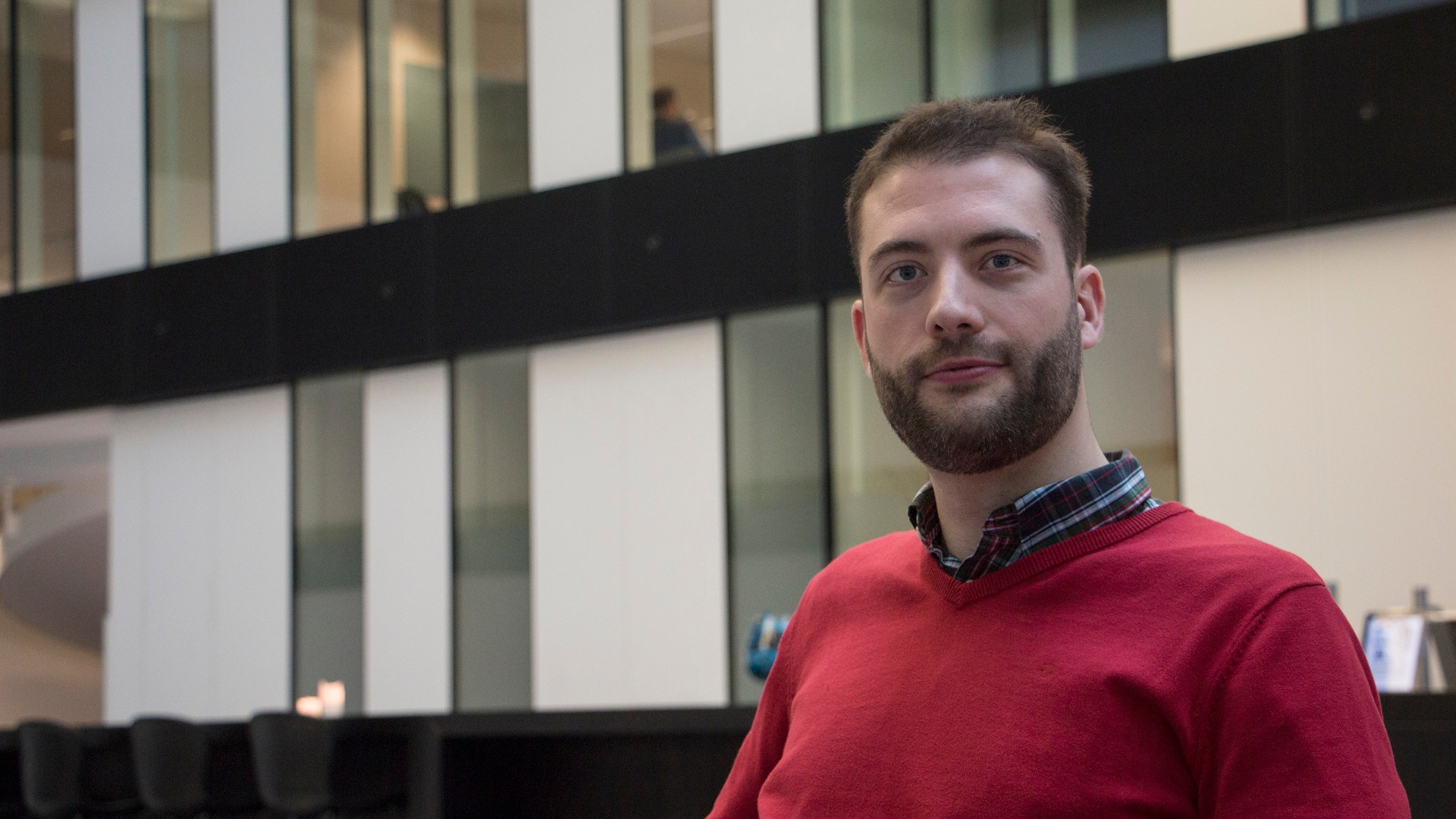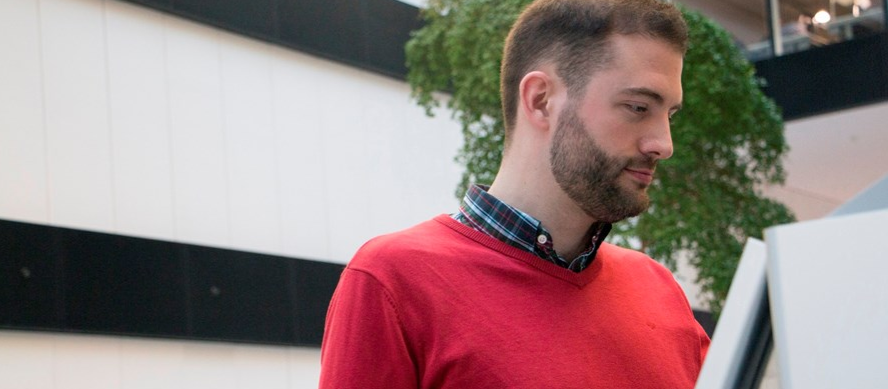As a MADE PhD at Technical University of Denmark, Michael Mischkot has been involved in the development of 3D printed inserts for injection molds.

As a MADE PhD at Technical University of Denmark, Michael Mischkot has been involved in the development of 3D printed inserts for injection molds.
The inserts are modest in size – not that much bigger than a thumbnail. Nevertheless, they tell the story of a huge potential for Danish manufacturing.
“If you have a pilot production or a small batch of plastic items that are to be manufactured using traditional injection molding, it may take 6-8 weeks to produce the mold and it may be a very expensive process,” Michael Mischkot explains.
“Producing this insert for injection molds with the help of 3D printing may only take a few days and will not be a costly affair. It is actually a manufacturing process that reduces delivery time from weeks to days and enables a cost reduction of 90 percent in certain scenarios,” he continues.
In 2013, Michael Mischkot moved from Austria to Denmark and the Technical University of Denmark to do his PhD within the MADE research activities in 3D printing and new production processes.
The aim was to establish 3D printing as a method to manufacture injection molding inserts with the same precision and accuracy as conventional manufacturing processes, thereby fulfilling industrial requirements. Especially in low volume production, pilot production, and the manufacturing of prototypes, this is highly demanded.

Slidstærke indsatser
Michael’s solution, which has given him a nomination for the Alexander Foss MADE Award for two consecutive years, is based on developing durable plastic inserts for the more expensive injection molds.
These inserts are additively manufactured in photopolymer – a liquid plastic material that cures and hardens when getting in contact with UV radiation. It is a relatively fast and cheap process with a high degree of freedom of design.
“Polymers are among the four-five most important materials that we use in industry, and injection molding is one of the most relevant ways to manufacture plastic items. Bearing these two facts in mind, it is easy to realize the potential of this technology,” Michael Mischkot says.
A significant part of his research has been focusing on extending the life span of the inserts for injection molds. This has required continuous development and tests of the 3D printed inserts.
During the project period we have managed to increase the life span of an insert by a factor of 200 under certain conditions
Michael Mischkot, MADE ph.d., DTU
“The life span of the insert is not as long as for a regular injection mold in steel which can produce up to millions of units. Nevertheless, during the project period we have managed to increase the life span of an insert by a factor of 200 under certain conditions,” Michael Mischkot emphasizes.
Great insight into Danish industry
During his PhD project, the young Austrian researcher has got a deep insight into Danish industry and into needs and challenges of Danish manufacturing companies. Two of the largest Danish companies, Danfoss and the LEGO Group, were two of the project partners in Michael’s research.
However, according to Michael Mischkot, 3D printing of injection molding inserts is relevant to a wide range of Danish manufacturing companies, thanks to the potential savings and the improvements in the manufacturing processes:
“In my opinion, the method is relevant to most industries manufacturing products and objects in polymer by injection molding. Many industries do that. For instance, we also investigated the manufacturing of medical devices using this method.”
The Technical University of Denmark will continue the research in the field and keep on developing this solution, but it is going be to without Michael Mischkot.
After defending his PhD, he is back in Austria in a new position as consultant in a global management consulting company.